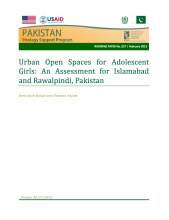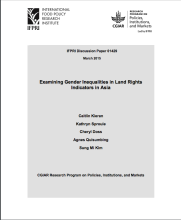Land Library Search
Through our robust search engine, you can search for any item of the over 73,000 highly curated resources in the Land Library.
If you would like to find an overview of what is possible, feel free to peruse the Search Guide.
/ library resources
Showing items 1 through 9 of 91.Land is an important asset for rural households, and having secure land rights is important for poverty reduction.
Concluímos preliminarmente que oferecer treino em gestão sustentável das terras (GST) aos agricultores de contacto típi-cos e fazer com que mantenham lotes de demonstração na comunidade tinha, no geral, um impacto reduzido na aprendiza-gem e na adoção de práticas de GST.
Urban open spaces are valued for their health, social, economic, and environmental benefits. Outdoor physical activity is important for the wellbeing of youth, while playfulness is crucial for creativity and innovation.
Gender disparities continue to exist in women’s control, inheritance, and ownership of land in spite of legislation directing improvements in women’s land access.
In the context of increasing vulnerability to climate change for people dependent on natural resources for their livelihoods, the International Food Policy Research Institute and partner organizations in Ethiopia, Kenya, Mali, and Bangladesh undertook a project broadly aiming to create knowledge
Although there is ample evidence of differences in how and where men and women acquire information, most research on learning and household decisionmaking only considers access to information for a single, typically male, household head.
This paper reviews the available data on men’s and women’s land rights, identifies what can and cannot be measured by these data, and uses these measures to assess the gaps in the land rights of women and men.
This paper explores initial findings from four case studies in the Gender, Agriculture, and Assets Project on changes in gender relations in different agricultural interventions. It documents the adaptive measures projects are taking to encourage gender-equitable value chain projects.
This survey was planned and executed in order to address key policy and research questions which have arisen as priorities for the research agenda, but for which there has been a lingering data gap. Successful commercialization of farming enterprises and f





